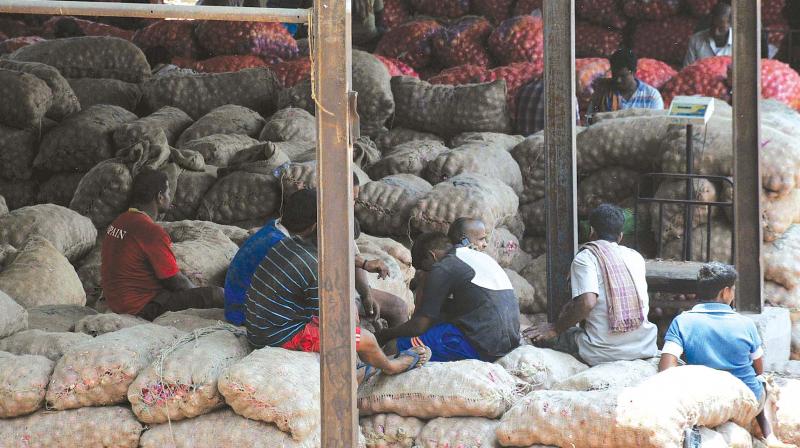Prices likely to surge in Bengaluru as truckers intensify their strike

Bengaluru: The prices of essential commodities, already on the up because of scorching summer, in the city are likely to rise further, as the ongoing strike by South India-based truck operators is set to go nationwide, with the All-India Motor Transport Association deciding to join the strike from April 8.
The main demand of the strikers has been the rollback of the 50% hike in insurance premium that the Insurance Regulatory and Development Authority has imposed, effective April 1.
The South-based truck operators in Karnataka, Andhra Pradesh and Telangana, led by the South India Motor Transport Association and South Zone Motor Transporters' Welfare Association (SZMTWA), started their indefinite strike from March 30. The All-India Confederation of Goods Vehicles Owners' Association (ACOGOA) joined the protests on April 1. The AIMTC, the oldest truck operators’ union, kept out of the strike, saying it would join on April 20, but has now been forced to advance the date considering the widespread support the strike has been receiving among cargo carriers.
The AIMTC decided to join the strike after the talks between the representatives of the truck operators and IRDAI in Hyderabad on Monday failed. The other demands of truck operators include rollback of increased RTO fees, ban on vehicles older than 15 years and the rule mandating speed governors on transport trucks, as well as removal of toll barriers on highways.
The strike is a Damocles’ sword hanging over the head of Bengalureans, who are already reeling under the high prices of vegetables in the city.
The unusually hot summer and consequent drying up of reservoirs, lakes and ponds has led to acute drought in a majority of the state’s taluks, resulting in lesser yields and consequent reduction in supply to Bengaluru markets.
This has led to anything between 100-120 percent increase in prices of vegetables in Bengaluru markets between early February and now. Homemaker Prema of Jayanti Nagar in East Bengaluru says the increase in vegetables has stressed her domestic budget. “We are vegetarians and the rising prices of greens have really pinched us. Beans and brinjal cost a bomb. Leafy greens and other veggies like beetroot have gone through the roof,” she says.
The poor and working class have been hit even harder. Shanti, who cooks at a PG accommodation at Nisarga Colony, says she has cut down on veggies that her large family consumes.

